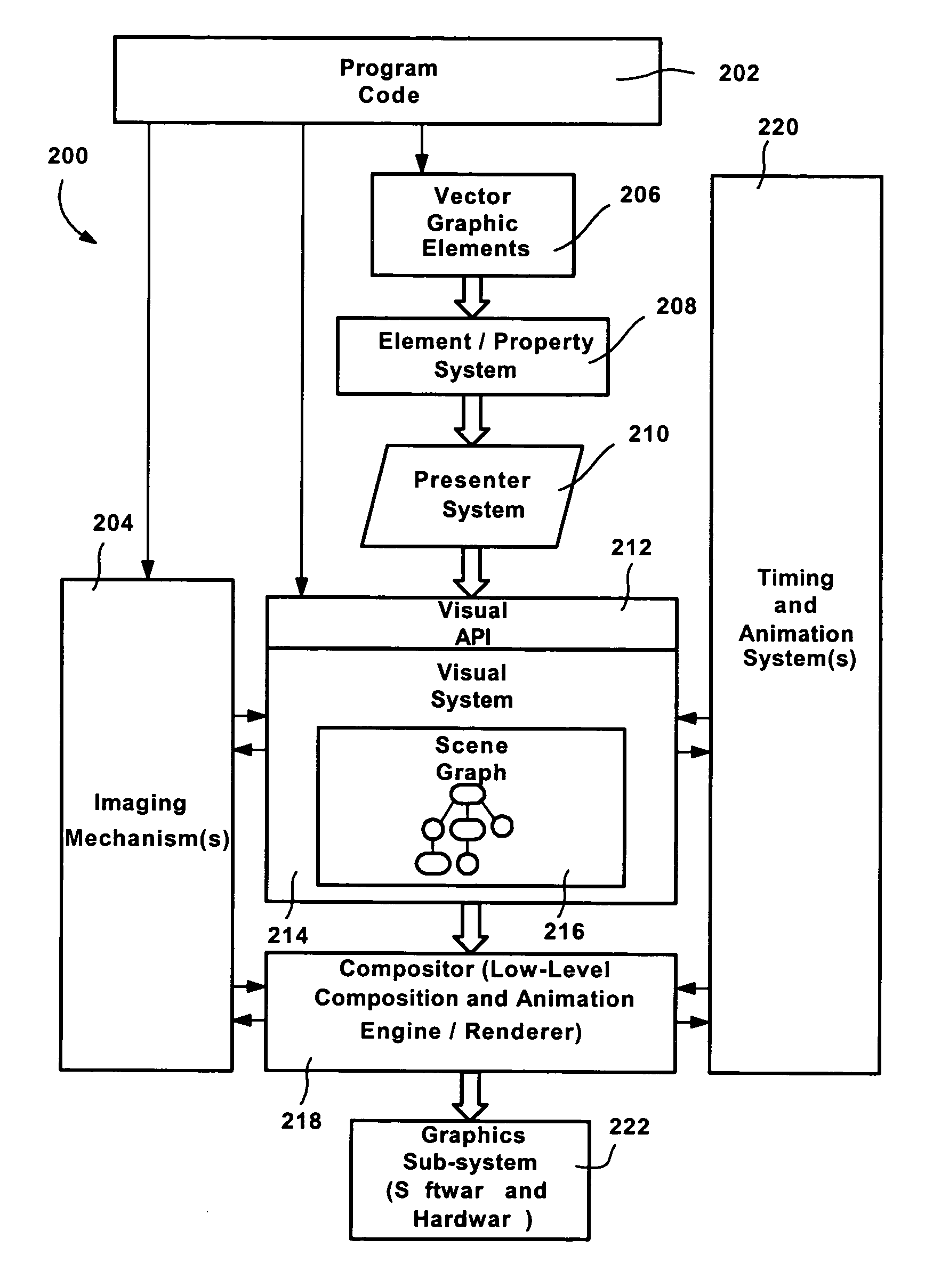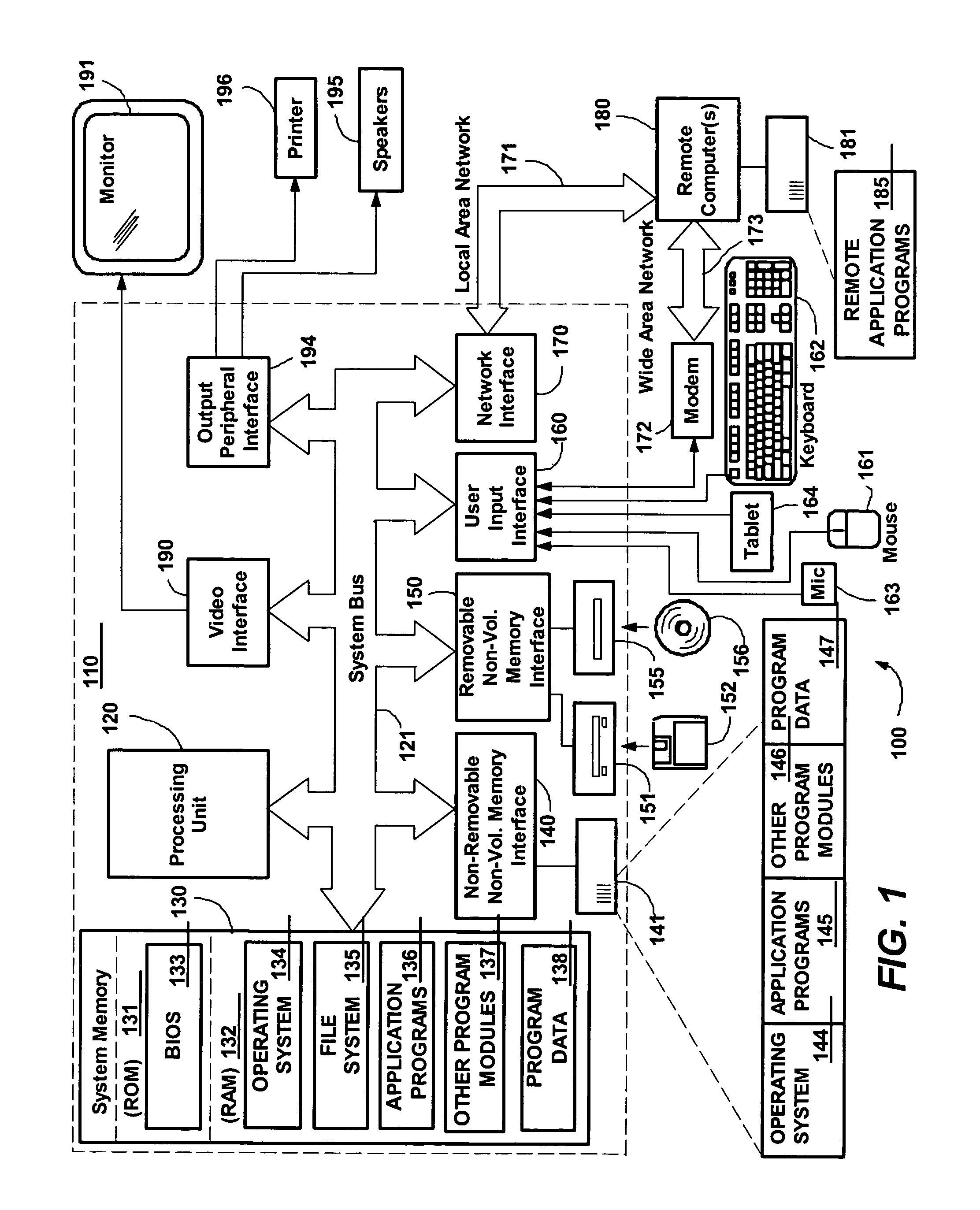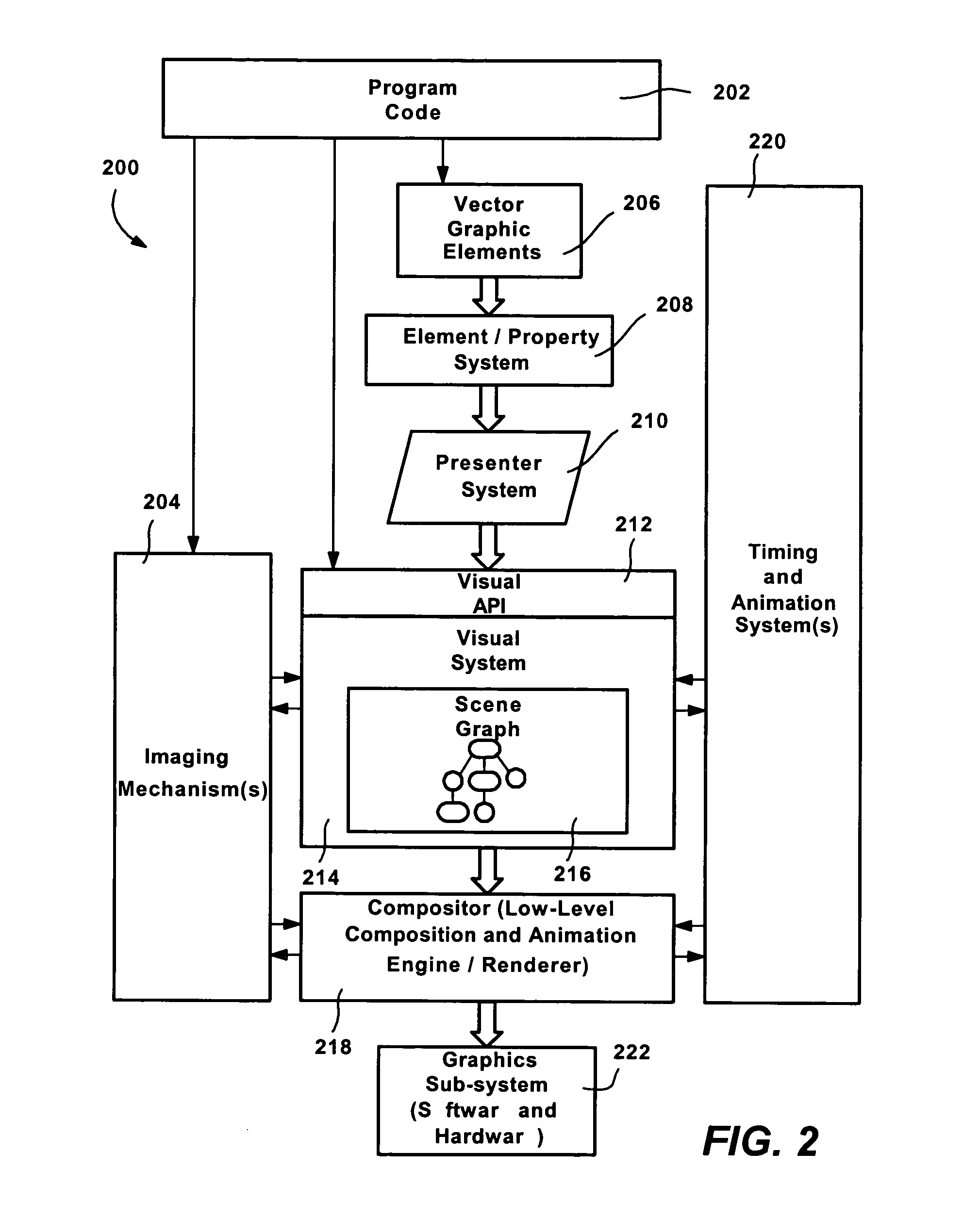System and method for a unified composition engine in a graphics processing system
omposition engine technology, applied in the field of system and method of a graphics processing system, can solve the problems of reducing the test coverage, reducing the efficiency of remoting, and achieving smooth animation in a multiple windowed environment. , to achieve the effect of reducing code duplication, improving test coverage, and efficient remoting
- Summary
- Abstract
- Description
- Claims
- Application Information
AI Technical Summary
Benefits of technology
Problems solved by technology
Method used
Image
Examples
Embodiment Construction
[0016] The present invention is substantially directed at a system and method for a Unified Composition Engine (UCE). The invention provides a method for composing a graphics output at both the application level and the desktop level, substantially reducing code duplication.
[0017] The following description is divided into three parts. The first part of the description describes an illustrative computing environment in which the present invention may operate. The second part of the description describes an illustrative graphics architecture. The third part of the description describes one illustrative implementation of the present invention.
Illustrative Computing Environment
[0018]FIG. 1 illustrates an example of a suitable computing system environment 100 on which the invention may be implemented. The computing system environment 100 is only one example of a suitable computing environment and is not intended to suggest any limitation as to the scope of use or functionality of the...
PUM
 Login to View More
Login to View More Abstract
Description
Claims
Application Information
 Login to View More
Login to View More - R&D
- Intellectual Property
- Life Sciences
- Materials
- Tech Scout
- Unparalleled Data Quality
- Higher Quality Content
- 60% Fewer Hallucinations
Browse by: Latest US Patents, China's latest patents, Technical Efficacy Thesaurus, Application Domain, Technology Topic, Popular Technical Reports.
© 2025 PatSnap. All rights reserved.Legal|Privacy policy|Modern Slavery Act Transparency Statement|Sitemap|About US| Contact US: help@patsnap.com



